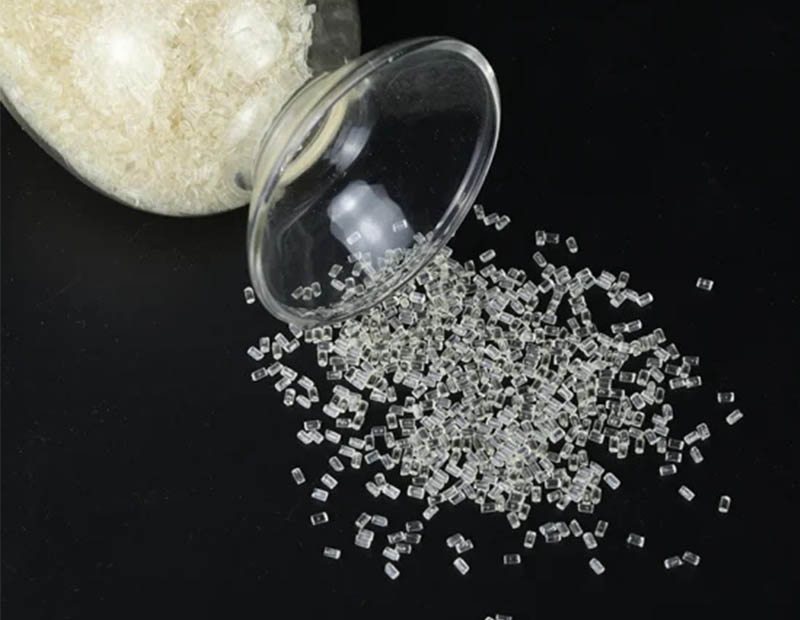Comprehensive Guide to PSU Material: Properties, Applications, and Maintenance
What is PSU Material?
Polysulfone (PSU) is a High-performance thermoplastic polymer belonging to the family of sulfone polymers. It is characterized by its amber transparency and exceptional thermal stability, maintaining mechanical properties from -100°C to +150°C. PSU exhibits a glass transition temperature (Tg) of 190°C and can withstand short-term exposure up to 180°C without significant degradation. With a density of 1.24 g/cm³ and tensile strength ranging from 70-75 MPa, PSU offers an excellent strength-to-weight ratio among engineering plastics.
Key characteristics of PSU material include:
Thermal stability: Continuous use temperature of 160°C (UL 746B rating)
Chemical resistance: Resistant to dilute acids, alkalis, and polar solvents (pH range 2-13)
Dielectric strength: 15 kV/mm (ASTM D149)
Flame resistance: UL94 V-0 rating at 1.5mm thickness
Hydrolytic stability: Water absorption of only 0.3% after 24-hour immersion (ASTM D570)

Technical Properties of PSU
The mechanical properties of PSU remain stable across a wide temperature range. Flexural modulus measures approximately 2.7 GPa at room temperature, decreasing only to 2.1 GPa at 150°C. Its coefficient of thermal expansion is 5.6 × 10⁻⁵ K⁻¹, significantly lower than many other thermoplastics. PSU demonstrates excellent creep resistance, with less than 1% strain under 20 MPa load at 23°C after 1000 hours.
Electrically, PSU maintains a volume resistivity of 10¹⁶ Ω·cm and dielectric constant of 3.1 at 1 MHz, making it suitable for high-frequency applications. The material's optical properties include light transmission of 75-88% in the visible spectrum (depending on grade) and haze values below 2% for optical-quality grades.
Applications of PSU Material
PSU's unique combination of properties makes it valuable across multiple industries:
Medical Applications
In healthcare, PSU is used for sterilization trays (withstanding 1000+ autoclave cycles at 134°C), surgical instrument components, and dialysis machine parts. Its biocompatibility (ISO 10993 and USP Class VI certified) and ability to maintain dimensional stability during gamma radiation sterilization (25-50 kGy doses) make it ideal for reusable medical devices.
Aerospace and Automotive
Aircraft interior components utilize PSU for its flame-smoke-toxicity (FST) compliance with FAR 25.853 standards. Automotive applications include under-hood sensors (operating at -40°C to +150°C), electrical connectors, and lighting components where thermal stability is critical.
Food Service and Water Treatment
PSU's NSF 51 certification allows its use in food processing equipment like coffee machine parts and milk pump components. In water treatment, PSU membranes with pore sizes ranging from 0.1-0.45 μm are used for ultrafiltration systems, offering chemical resistance to chlorine at concentrations up to 200 ppm.
Electrical and Electronics
The material serves in circuit breaker components, relay housings, and high-temperature wire insulation (rated for 130°C continuous service). Its comparative tracking index (CTI) of 225V (IEC 60112) prevents electrical tracking in humid environments.
Processing and Fabrication
PSU can be processed using standard thermoplastic methods with specific considerations:
Injection Molding: Requires barrel temperatures of 320-380°C and mold temperatures of 100-150°C. Drying is essential (4 hours at 120°C) to achieve moisture content below 0.05%.
Extrusion: Typical melt temperatures range 340-370°C with draw ratios up to 4:1 for oriented films.
Machining: Can be milled, drilled, and turned using carbide tools at surface speeds of 100-200 m/min with adequate cooling.
Post-processing options include ultrasonic welding (at frequencies of 20-40 kHz), solvent bonding using dichloromethane (with joint strengths reaching 80% of base material), and adhesive bonding with epoxy or cyanoacrylate systems.
Maintenance and Care of PSU Components
Proper maintenance extends the service life of PSU products:
Cleaning Procedures
For medical and food-contact applications, PSU can withstand:
Steam sterilization at 121-134°C for 15-30 minutes cycles
Chemical disinfection with hydrogen peroxide (3-6% solutions) or peracetic acid (0.2-0.5%)
Alkaline cleaners with pH < 11 at temperatures below 60°C
Avoid abrasive cleaners that may scratch surfaces (PSU has a Rockwell M hardness of 69) and chlorinated solvents that can cause environmental stress cracking.
Storage Conditions
Store PSU components in:
Temperature-controlled environments (15-30°C)
Relative humidity below 50%
UV-protected areas or opaque containers (PSU has limited weatherability with 50% tensile strength retention after 1000 hours Xenon arc exposure)
Inspection and Replacement
Regularly inspect PSU components for:
Surface crazing (indicator of chemical attack)
Discoloration (yellowing indicates thermal degradation when ΔE exceeds 3.0 on the CIELAB scale)
Dimensional changes (warpage > 0.5% from original specifications)
For critical applications, perform material testing every 2-3 years including:
FTIR spectroscopy to detect molecular changes
Differential scanning calorimetry (DSC) to verify Tg remains at 190±5°C
Mechanical testing to ensure tensile strength remains above 85% of original values






